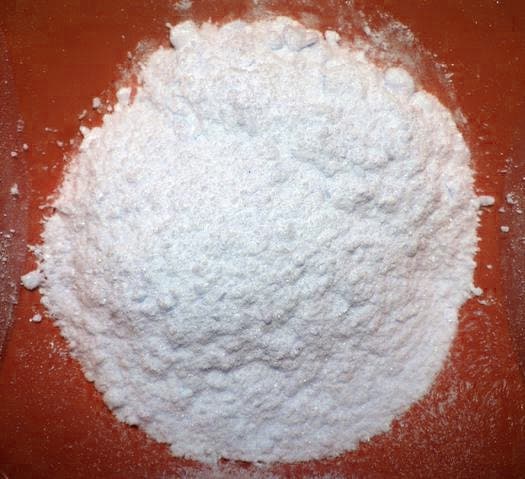Borax is a naturally occurring mineral that has been used for centuries for a variety of purposes, from cleaning to preserving food. Until not too long ago, the compound used to be the go-to solution for disinfection and whitening, but also for fighting mold and mildew. It’s also a powerful insecticide that can wipe out ants. But despite its wide range of uses, many people are still unsure about whether or not it’s safe to spray it around the house.
What is borax?
Borax, or sodium borate, is an alkaline mineral salt with a powdery white appearance. Borax is most famous as a laundry washing powder, but today it has fallen out of fashion, as modern cleansers and cosmetics use different ingredients. Yet some people now make their own homemade cleaning products using borax because it is a natural compound, being seen as a ‘green’ alternative to industrial cleaning products.
Borax is one of the most important boron compounds. The term “borax” may refer to various very similar compounds, distinguished by their water content, such as:
- Anhydrous borax or sodium tetraborate (Na2B4O7)
- Borax pentahydrate (Na2B4O7·5H2O)
- Borax decahydrate (Na2B4O7·10H2O)
However, in the overwhelming majority of cases, borax refers to sodium tetraborate.
Borax is used in all sorts of cleaning recipes thanks to its stain-fighting and grease-cutting abilities. You’ll find borax present in various products and industries, not only cleaning supplies. In some gold mining operations, it replaces mercury, for instance. Borax is also used in food as a preservative, although it has been banned for this purpose in the United States for some time.
The difference between borax and boric acid
Borax is not the same as boric acid (hydrogen borate), although it’s very easy to confuse the two. Both compounds have been used as pesticides used in households. Also, both compounds come as white powders that are easily dissolved in water.
These two compounds, however, should not be mistaken as they are entirely different chemical compounds. Boric acid is never used as a cleaning product and is usually used exclusively as a pesticide. Boric acid is much more toxic than borax and should be handled with extra care.
An easy way to remember the difference between the two is that borax is a natural mineral, mined from the ground or collected from evaporated deposits, whereas boric acid (H3BO3) results after acidifying borax. Borax is, therefore, the hydrated salt of boric acid.
Is borax safe?
You’ll find that many DIY home cleaning recipes on the internet employ borax as an eco-friendly alternative to petroleum-based ingredients. However, even though borax is a naturally occurring mineral, that doesn’t necessarily mean it is safe.
Borax is often used as an insecticide, particularly against ants. This obviously implies a level of toxicity that may be harmful to humans and pets once it passes a certain dose. So far, there is no study suggesting that humans are affected by the small amounts of borax typically used in cleaning supplies.
In 2011, the Environmental Working Group (EWG) released a report in which it recommended removing borax from green cleaning products. The following year, EWG reiterated its stance in the 2012 Guide to Healthy Cleaning. According to EWG’s Megan Boyle, borax and its relatives can cause irritation to the skin and eyes and disrupt hormones.
What’s more, “a safety review by the Environmental Protection Agency found that chronic exposure to high doses of borax, or its cousin boric acid, causes testicular atrophy in male mice,” wrote Kirsten Hudson for Organic Authority. “Animal studies also show disruptions in ovulation and fertility in females when exposed to borax,” she added. However, there is no evidence at all that these effects are also applicable in humans.
Breathing in borax dust can cause respiratory irritation, but this is typically only a concern in industrial settings where borax is being produced or used in large quantities.
In general, borax is considered safe to use as long as you don’t ingest or inhale it. Toxic levels for children are 5-6 grams—or roughly a half teaspoon. For adults, the toxic dose is 10-25 grams. If you do use borax, wear gloves, and keep it out of reach of kids and pets.
Borax-free ideas for DIY cleaning products
If you’re looking for eco-friendly alternatives to both borax and off-the-shelf cleaning products, you don’t need to look further than your pantry.
For instance, vinegar is a great all-purpose cleaning product in itself. Just mix a solution of equal parts of water and vinegar in a spray bottle and you’ll have a cleaning product that will clean most areas of your home. It’s also a great disinfectant and deodorizer.
Lemon juice is another natural substance that can be used to clean your home. It can be used to dissolve soap scum and hard water deposits, and it’s great for shining brass and copper. Also, in combination with vinegar or baking soda, you can make cleaning pastes.
Any DIY cleaning product list would be incomplete without baking soda — quite possibly the most versatile cleaning product on the planet. It’s great for scrubbing surfaces and does wonders as a deodorizer. Try placing a small open container with some baking soda inside your refrigerator or freezer, then marvel at how fresh everything smells the next day. In fact, you can use the same technique to deodorize just about anything: trash cans, laundry, smelly sneakers, you name it!
If you don’t want to make your own cleaning products but would like to purchase safe, eco-friendly products at your local store, look for certified green products with the Green Seal or EcoLogo mark on the label whenever possible.
Lastly, a word of caution. Remember that whether you buy or make your own, any cleaning supply other than plain soap and water might cause skin or eye irritation, or might produce caustic vapors. So, always handle house cleaning with care.
Was this helpful?





